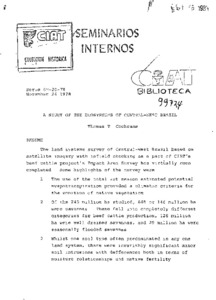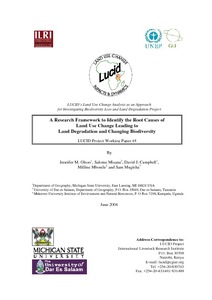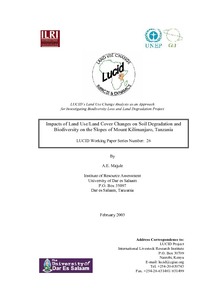A socio-hydrological approach for incorporating gender into biophysical models and implications for water resources research.
Men and women interact with water resources and landscapes in different ways, and there are frequent criticisms that little research is undertaken across disciplines to address this issue. Biophysical scientists in particular struggle with how to integrate “gendered” water uses into models that are necessarily based on prevailing laws and equations that describe the movement of water through the hydrological cycle, independent of social constructs.






